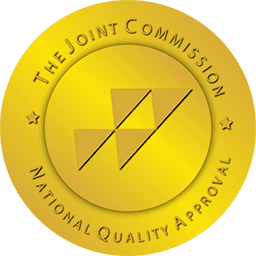- Home
- Treatment
Treatment Designed for You.
Get in touch with Absolute Awakenings today and begin your journey to long-term healing & recovery. - What We Treat
An Experience in Healing
Get in touch with Absolute Awakenings today and begin your journey to long-term healing & recovery. - About
The Rehab You've Been Looking For
Get in touch with Absolute Awakenings today and begin your journey to long-term healing & recovery. - Tour
- Resources
Don't Wait Another Day.
Get in touch with Absolute Awakenings today and begin your journey to long-term healing & recovery. - Admissions
The Rehab You've Been Looking For
Get in touch with Absolute Awakenings today and begin your journey to long-term healing & recovery. - Contact
(866) 627-0196
3000 NJ-10, Morris Plains, NJ 07950
admissions@absoluteawakenings.com
Schedule a Tour Now
Get in touch with Absolute Awakenings today and begin your journey to long-term healing & recovery.
Begin Your Journey Now
Begin Your Journey Now
- Home
- Treatment
Treatment Designed for You.
Get in touch with Absolute Awakenings today and begin your journey to long-term healing & recovery. - What We Treat
An Experience in Healing
Get in touch with Absolute Awakenings today and begin your journey to long-term healing & recovery. - About
The Rehab You've Been Looking For
Get in touch with Absolute Awakenings today and begin your journey to long-term healing & recovery. - Tour
- Resources
Don't Wait Another Day.
Get in touch with Absolute Awakenings today and begin your journey to long-term healing & recovery. - Admissions
The Rehab You've Been Looking For
Get in touch with Absolute Awakenings today and begin your journey to long-term healing & recovery. - Contact
(866) 627-0196
3000 NJ-10, Morris Plains, NJ 07950
admissions@absoluteawakenings.com
Schedule a Tour Now
Get in touch with Absolute Awakenings today and begin your journey to long-term healing & recovery.
Personality Disorder Treatment Center in New Jersey
Personality Disorder Treatment
- Written by Amanda Stevens, B.S.
- Reviewed By: Dr. Po-Chang Hsu, M.D., M.S.
- Updated:
- Published:
- Reading Time: 8 minutes
- Absolute Awakenings Treatment Center
- What We Treat
- Mental Health
- Personality Disorders
Experience personality disorder treatment in NJ that enacts true & lasting change.
Personality Disorder Treatment in New Jersey
Experience Peace
Table of Contents
Personality disorders are characterized by rigid and unyielding patterns in behaviors, thoughts, communication, and actions that go against the norm. With a personality disorder, it’s often difficult to relate to others or to understand their thoughts and emotions. Personality disorders are not the same as mood disorders.
There are more than 10 recognized types of personality disorders. Each is different in terms of symptoms, criteria for diagnosis, effects, and cause. However, one commonality that all personality disorders share is that they’re likely to be co-occurring disorders. Many people who abuse drugs and alcohol do so to mute the symptoms of their untreated personality disorders.
Having an untreated personality disorder can be incredibly lonely and frustrating at times. Some disorders come with an intense fear of abandonment and others cause extreme paranoia and fear of persecution. Moreover, these disorders have a tendency to create hurtful consequences across all areas of life. People often have a hard time keeping friends, maintaining gainful employment, and staying on top of their most basic responsibilities.
The good news is that it’s possible to treat both personality disorders and substance use disorders simultaneously.
At Absolute Awakenings, we offer a broad range of mental health services for our clients. Our mental health treatment programs are designed to provide sustainable plans for managing them over time.
With dual diagnosis treatment, those recovering from substance abuse aren’t compelled to use drugs or alcohol to alleviate their mental and emotional pain. Moreover, they have a far better chance of establishing stable and fulfilling lives post-treatment.
Mental Health Issues We Treat
What We Treat
Personality Disorders
Schizophrenia
ADD/ADHD
Dual-Diagnosis
understanding personality disorders
What are Personality Disorders?
Various environmental and genetic influences are believed to be responsible for the development of personality disorders. For instance, people are more likely to develop these conditions if they experienced neglect or abuse during their formative years. Sometimes, PTSD may spiral into a personality disorder if left untreated. Personality disorders are also more common among people with one or more immediate family members who also have mental health issues.
The signs and symptoms of personality disorders vary significantly across individual disorder types. Some disorders cause people to mistrust others, even loved ones. Others cause people to be manipulative, emotionally numb, and prone to rash decision-making. However, several symptoms that are common in nearly all personality disorders include:
- Frequent and extreme mood swings
- A tendency to be heavily dependent upon others
- Long periods of social isolation
- Unmerited aggression and frequent angry outbursts
- An inability to control one’s emotions or behaviors
Having a family history of personality disorders or mental health conditions are a major risk factor for these illnesses. People are also at risk of developing personality disorders if they had an unstable, chaotic lifestyle during their childhood years. Some research additionally suggests that personality disorders may be more common in people with:
- Specific variations in the structure of their brains
- Their brain chemistry
- Their overall brain functioning
What are the Different Types of Personality Disorders?
There are three classes of personality disorders known as cluster A, cluster B, and cluster C. This is according to the nature of their symptoms, the most effective treatment options, and their overall impact on the individual.
Personality disorders grouped within cluster A include paranoid personality disorder, schizotypal personality disorder, and schizoid personality disorder.
The symptoms of paranoid personality disorder include:
- Perceiving non-threatening remarks as personal attacks
- Holding grudges
- Unsupported beliefs that others are trying to cause physical, emotional, or financial harm
- Hostile reactions to perceived slights
- Recurring or constant suspicion that a significant other is unfaithful
Schizoid personality disorder often causes people to:
- Appear indifferent, cold, or outright emotionless
- Fail to pick up on important social cues
- Spend time in isolation
- Lose interest in physical intimacy with others
People with a schizotypal personality disorder may:
- Deal with intense social anxiety
- Exhibit inappropriate or atypical emotional and social responses
- Believe that their thoughts have the power to influence events and people
- Assume that causal events contain special messages for them alone
Cluster B personality disorders are characterized by unpredictable behaviors and overly dramatic emotions and emotional responses. They include borderline personality disorder (BPD), antisocial personality disorder, histrionic personality disorder, and narcissistic personality disorder.
Borderline personality disorder includes symptoms such as:
- A tendency to form relationships that are both unstable and intense
- Dramatic mood swings caused by interpersonal stress
- Fleeting, stress-related paranoia
- Frequent displays of aggression or intense anger
- Threats of or participating in self-harm
Common symptoms of antisocial personality disorder include:
- Frequent theft, lying, and manipulation
- Repeatedly violating the rights of others
- Little to no care for the feelings or welfare of others
- Impulsive behaviors
- Inability to feel remorse
Among the more common signs and symptoms of histrionic personality disorder are:
- Shallow emotions that change rapidly
- The ability to be easily influenced
- Overly concerned with physical appearance
- Always seeking approval or attention
People with narcissistic personality disorder may exhibit some or all of the following symptoms:
- Viewing themselves, their emotions, and their own welfare as being more important than that of others
- Overlooking the needs and emotions of others
- Frequently taking advantage of others
- Overstating their accomplishments and abilities
People with cluster C personality disorders often exhibit fearful or anxious thoughts and behaviors. Cluster C personality disorders include dependent personality disorder, obsessive compulsive personality disorder, and avoidant personality disorder.
Symptoms of dependent personality disorder include:
- Being excessively clingy and submissive
- Willing to tolerate abusive treatment
- Fear of having to become self-sufficient
- Low self-esteem
- Issues with self-image
People with obsessive compulsive personality disorder are often:
- Obsessively preoccupied with orderliness and rules
- Unable to get rid of valueless items that are broken or otherwise unusable
- Stubborn
- Needing to constantly be in control of everyone and everything
Common symptoms of avoidant personality disorder include:
- Often feeling inferior whether physically or intellectually
- Timid
- Extremely afraid of ridicule or embarrassment
How to know if you need help for a personality disorder
Diagnosing & Treating Personality Disorders in New Jersey
All mental health issues are diagnosed using the criteria listed in the Diagnostic and Statistical Manual of Mental Disorders (DSM-5). For most personality disorders, it’s necessary for people to exhibit at least three or more core symptoms. The symptoms must also present for a prolonged period of time. Diagnostic methods also include full medical examinations to rule out possible, physiological causes of the symptoms experienced.
Treatment for personality disorders includes a combination of medication and various types of therapy, including psychotherapy. Various evidence-based treatment tools are often leveraged, including stress management workshops, skill-building, life-planning activities, and resource identification.
As with any mental illness, having a long-term support plan for the management of personality disorders is beneficial. Seeking help through treatment services often help develop better coping skills, sometimes inpatient residential treatment is recommended.
Offered by clinical social workers, counselors, psychologists, and psychiatrists, psychotherapy encompasses a broad range of therapy techniques. Often referred to as “talk therapy”, psychotherapy teaches healthy coping techniques, self-soothing techniques, and stress
management among other things. It often acknowledges the trauma and pain that leads to atypical or unhealthy behaviors. Psychotherapy also encourages patients to acknowledge and work through challenging or repressed emotions.
Cognitive behavioral therapy (CBT) is one type of psychotherapy commonly used to treat personality disorders.
CBT works on changing negative thought patterns and negative behaviors by using techniques such as:
- Roleplaying
- Journaling
- Exposure therapy
- Guided discovery
- Cognitive reframing
Personality disorders grouped within cluster A include paranoid personality disorder, schizotypal personality disorder, and schizoid personality disorder.
Dialectical behavioral therapy (DBT) is often an important component of treatment plans for personality disorders. DBT encourages people to acknowledge and honor their trauma and other negative experiences. Both contribute to harmful, self-defeating, or self-destructive behaviors.
The primary goals of DBT are:
- Building stress tolerance
- Learning mindfulness
- Developing emotion regulation skills
- Increasing interpersonal effectiveness
Medical management of personality disorders is especially important for patients with variations in brain chemistry, structure, and functioning. Depending upon the type and severity of their disorders, patients may receive one or more medications. These may include anti-anxiety medications, antidepressants, antipsychotic medications, and mood stabilizers.
Among the most frequently prescribed products for personality disorders are:
- Depakote
- Lamictal
- Carbamazepine
- Abilify
- Latuda
- Zyprexa
- Seroquel
- Risperdal
- Geodon
- Vraylar
We Accept With Most Major Insurance
If you or a loved one is ready to get help but finances are holding you back, give us a call. We can work with your health insurance provider.














Stories of Hope & Healing
Hear from Our Alumni
A jewel among many local drug and alcohol rehab treatment centers in Denville, New Jersey, the care and treatment options you’ll receive at Absolute Awakenings is second to none. From not knowing if you’ll ever feel in control again to being confident in the path you’re on, we are invested in YOU every step of the way.
Begin Your Journey to Long-Term Healing
Make the Call. Change Your Life.
Yes, You Can Get Your Life Back...
With our trained and compassionate professionals in your corner, freedom can be yours. All it takes is you choose yourself. Choosing a better tomorrow.
helping you find balance in your life
Get Real Help for Personality Disorders at Our New Jersey Treatment Center
At Absolute Awakenings, we’re staffed by a compassionate and highly experienced team of trained medical and mental health professionals. We offer a diverse range of options in psychotherapy along with stress management services and many other support types when working through transitions during treatment. Whether treating personality disorders or other co-occurring mental health issues, we always take an individualized, multi-pronged approach. We are diligent in our efforts to ensure accurate diagnosis and effective treatment plans. We help our patients establish solid foundations for lifelong success in recovery.
Life with an untreated personality disorder is never easy. These disorders make it hard to establish strong, meaningful connections with others. They also make it difficult to perform well at work or school and enjoy consistent mood balance. All of these issues are compounded when people self-treat their symptoms in harmful and unsustainable ways.
If you’re ready to start healing and experience the benefits of a customized mental health treatment plan, call us today!
© Copyright 2024. All Rights Reserved. AATC.
- Terms & Conditions
- Privacy Policy



